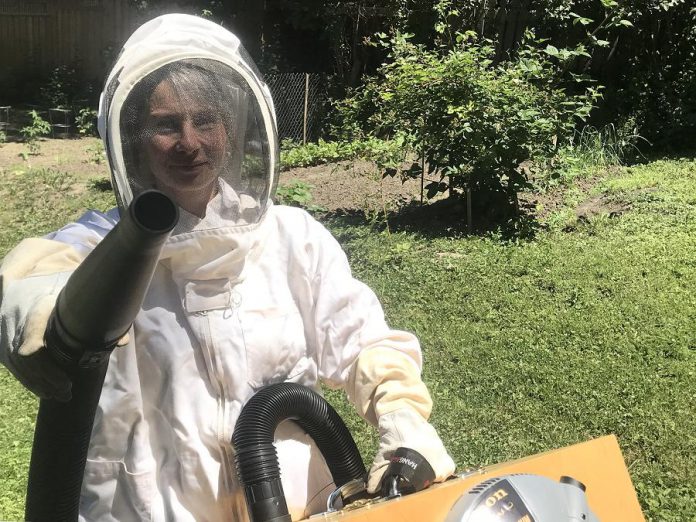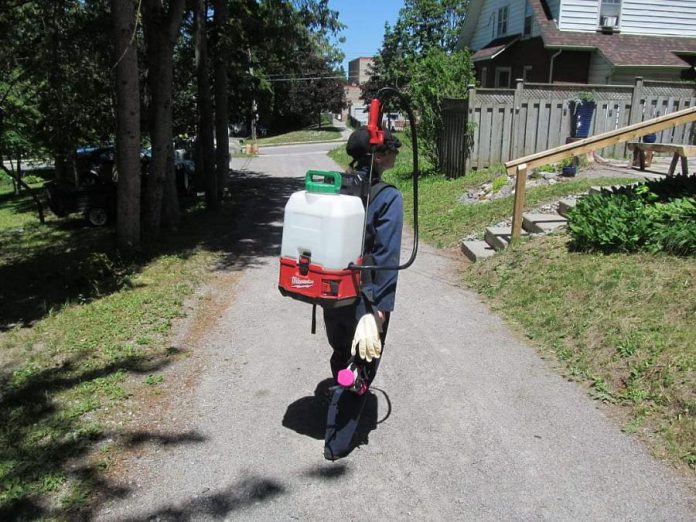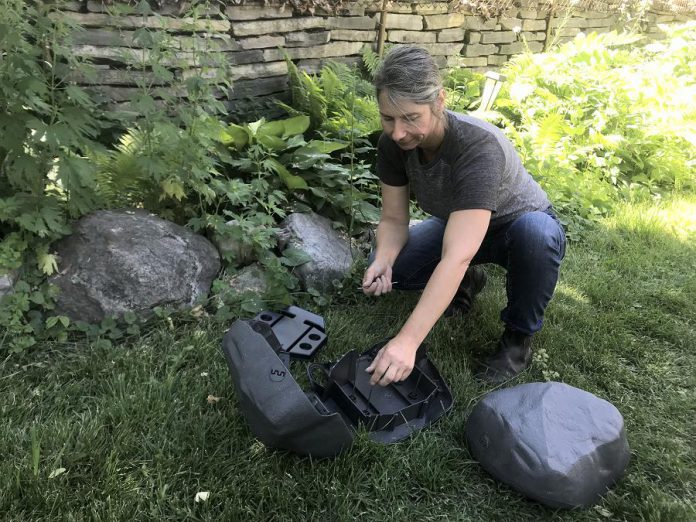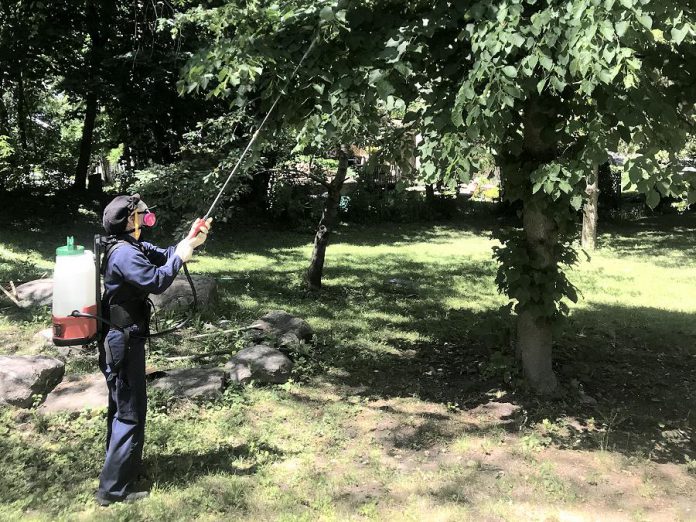
The pandemic has brought circumstances that have changed many people’s careers forever. Whether you lost or quit your job, began working from home, or reinvented your business to meet current needs, for many people, work doesn’t look the same as it did pre-pandemic.
For Christine Jaros, this is the case since she built her own pest control company, VerminX, from the ground up during the pandemic.
Christine has owned an apartment building for over 20 years and, throughout that time, learned how to do just about anything you can think of relating to maintenance and preventative maintenance. So, when her friend and neighbour had a rodent issue in her home last year, Christine was her go-to girl for help.
“I had rats in my home the year prior and dealt with them pretty effectively on my own,” Christine explains. “I had bait boxes and I knew what to do.”
But, when she went to purchase baits, she was denied because she wasn’t a farmer and didn’t have an exterminator’s licence.
“That spurred me on because I don’t like being told when I can’t do something,” Christine recalls.

Right away, Christine ordered the materials and manuals she needed to study for the exterminator’s exams. Not long after, she drove to Scarborough for the exam and passed.
With her licence in hand and a name for her business in mind, Christine still needed some support to launch her new venture. That’s when she participated in the winter 2021 intake of Starter Company Plus, a provincially funded program administered by Peterborough & the Kawarthas Economic Development’s Business Advisory Centre.
The eight-week program aims to teach new entrepreneurs the necessary skills to start and grow their business, including creating a business plan. Of the 12 entrepreneurs who participated in the program, six were awarded a grant of $5,000 based on the strength of their business plan and the viability of their business.
Christine was one of the six entrepreneurs who was awarded a grant, which she then used to help insure her business, VerminX Pest Control, which launched this past spring.
Being eco-conscious is essential to Christine in every facet of her life, so it made sense to her to run her pest control business without relying on chemicals and pesticides.
“The importance, for me, is that it limits my toxicity levels,” she explains. “I’ve always been extremely conscious of food pesticides and chemicals. It was important for me to maintain that integrity when running my business. For the customers, it is a win-win because I’m getting the job done and not creating another issue.”

Christine believes that her ethical pest control business fills an important niche in the market.
“Many people are trying to figure out how to keep their houses clean by using eco-friendly cleaning products,” she says. “This is just another plank in building a cleaner house and keeping our environment as eco-friendly as we can without adding more problems to it.”
So far, Christine has had a very positive response from the community and has generated a lot of word-of-mouth business. She notes that all of her clients have been women so far. Since she is a woman in a traditionally male-dominated field, Christine speculates that some women are more comfortable with another woman entering their home to do the job.
“More than 50 per cent of homeowners are women, and they’re usually single women with kids, which is fairly representative of my client base,” says Christine. “I think they feel more comfortable, especially during COVID, with me coming into their house.”
Although Christine launched VerminX during the pandemic, she says it hasn’t had a significant impact on her business since extermination is already a relatively COVID-safe business. Exterminators always have to wear masks and gloves. In addition, pest control was deemed an essential service throughout the province’s various lockdowns.
Christine adds that launching her own business during the pandemic was also a welcome distraction.
“It’s been something for me to focus on — building something — instead of getting bogged down on the COVID numbers and the day-to-day panic and anxieties.”

According to Christine, while the pandemic hasn’t affected the viability of her pest control business, it has had an impact on the types of jobs for which she is hired.
For example, with more people feeding birds in their backyards during the pandemic, bird populations have increased — as has the rodent population because of the increased availablity of food. Homeowners are experiencing more issues with birds and squirrels nesting on window ledges and in attics.
At the same time, the bed bug population has fallen over the past year since people are moving around less. Christine speculates the bed bug population will rise again as the pandemic dwindles and people move around more. Her chemical-free solution for this common pest issue uses fungal spores and, unlike common chemical treatments, can be sprayed right onto mattresses.
Gypsy moths are another pest species that have arisen in the past year. Gypsy moths are a problem in Ontario since they are an invasive species originally from Europe, threatening their new environment by disrupting local ecosystems. Christine’s solution for this species is a BTK bacteria spray.
“The bacteria pulverizes their intestinal tract and they die,” Christine explains. “The good thing about using the BTK is it’s considered biological treatment. Birds can still eat the caterpillars after they’ve ingested it and be completely fine. It doesn’t affect other creatures that might be in the area.”
The BTK spray treatment only works when gypsy moth caterpillars are about one-quarter of an inch large, so it is too late for Christine to handle this issue this year. For next year, she is looking into a hormone disruption solution meant for after the caterpillar stage. When the males are flying around, they would be attracted to a box instead of to mate.
While she is an expert at dealing with many different species of pests, Christine’s specialty is wasp and bee removal from inside homes — something she has lots of experience with since she is also a beekeeper.
For wasps and bees, Christine builds a containment for the hive, drills a hole into it, and vacuums them out. Wasps are hit with dish soap and drown, while honey bees — important pollinators — are kept alive and contained until Christine can release them into a new hive.
According to Christine, she starts an Integrated Pest Management (IPM) system when she is hired for a pest removal job. She says the system involves a lot of communication between herself and her client.
“When I start the IPM system for a client, I do an assessment,” explains Christine. “We have a chat, and we talk about if they’ve seen the pests, if they’ve seen evidence of pests, and if they’ve found a nest. Based on those findings, we make a plan together.”
Christine says it’s important to approach any pest control issue with an open mind and to not make any judgements.
“Clients are generally feeling very vulnerable and upset when something like this happens,” she notes. “Whether it be bed bugs, rats, or raccoons in their attic, it’s overwhelming for the average homeowner to know what to do and how to do it.”
For those DIYers who want to deal with pests on their own, but need some advice on the best methods, Christine says she is happy to do consultations.
VerminX serves Peterborough and the Kawarthas region. To contact Chrstine, email christine@verminx.ca or text or call 705-917-4480. For more information, visit verminx.ca.






























